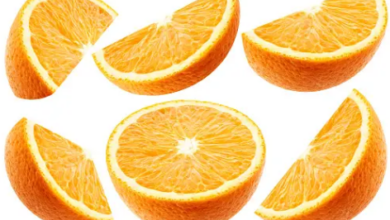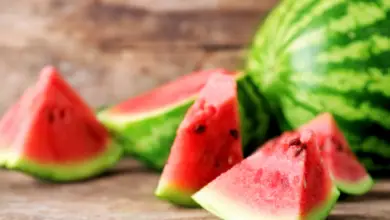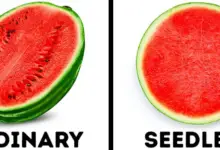Is Cucumber Good For Hepatitis B Patients? Is It Safe Or Not?

If you have hepatitis B, what you eat is very important for your health. It’s good to know which foods help you feel better and which ones might make you feel worse. People often wonder about cucumbers. Are they okay for someone with hepatitis B, or should they stay away from them? Let’s explore this further.
Hepatitis B is when the liver becomes inflamed because of the hepatitis B virus (HBV). It can be serious and lead to big problems like liver damage, liver failure, and liver cancer if it’s not taken care of. But many people control their hepatitis B with medicine, what they eat, and changes in how they live.
There are several things to think about for a diet if you have hepatitis B:
- It’s very important to drink lots of fluids to avoid dehydration, which can make the liver work too hard. Herbal teas, soups, and plain water are really good to drink.
- It’s also a good idea to not eat too much salt because it can cause your body to hold on to fluid, which isn’t good for your liver.
- Alcohol is really bad for the liver. If you can stop drinking alcohol, that’s best.
- Eating healthy foods and having a balanced diet are always important.
- Getting enough vitamins and minerals, like vitamin D, B vitamins, zinc, and antioxidants, helps your liver stay healthy.
- Don’t eat raw shellfish or meat that isn’t cooked well because you might get an infection.
Now let’s focus on cucumbers and see if they are good or bad for people with hepatitis B.
Table of Contents
What’s Good and Bad about Cucumbers for Your Health?
Cucumbers don’t have many calories and have lots of water and some important nutrients in them. But there can be some downsides too.
Why Cucumbers Might Be Good for You
- Cucumbers are made up of over 95% water, which is great for staying hydrated. And when you have hepatitis B, good hydration helps your liver work well and keeps fluid from building up in your body.
- They also have vitamin K, which helps blood clot and is good for your liver, and other nutrients like potassium, vitamin C, and manganese. Potassium helps you stay hydrated, and vitamin C is an antioxidant that protects the cells in your liver.
- Cucumbers have stuff like polyphenols and flavonoids that help stop swelling in the body. Keeping inflammation down is useful for dealing with hepatitis symptoms.
- Plus, they don’t have many calories. A cup of cucumbers only has about 16 calories, so you can eat a lot of them without eating too many calories. This helps you keep a healthy weight.
Some Possible Down Sides of Cucumbers
- Sometimes cucumbers can taste bitter because of something called cucurbitacins in them. Some people might not like the taste, and it could be harder to digest for others.
- Cucumbers are often sprayed with pesticides. Eating cucumbers that are organic means there are no pesticides, which is better for your liver because you’re not getting any extra toxins.
- Many people like to add salt to cucumbers, but if you’re trying to eat less salt, this might not be good for you.
In general, cucumbers have water and nutrients that could help someone with hepatitis. But you should think about the possible bitter taste, whether there are pesticides on the cucumbers, and if they have salt on them.
How to Eat Cucumbers If You Have Hepatitis B
Here’s how you can enjoy cucumbers if you have hepatitis B:
- Always choose organic cucumbers to avoid pesticides. This means fewer harmful chemicals for your liver.
- It’s best to eat cucumber with the skin on because it has lots of healthy plant nutrients. Just make sure to wash them well before eating.
- If you get a bitter-tasting cucumber, try mixing it with sweeter ones so it’s easier to eat.
- Have just one cucumber or a cup or two a day to get the benefits without eating too much.
- Instead of adding salt, try using lemon juice, herbs, pepper, or other spices to make them taste better without adding sodium.
- Put some slices of cucumber in water to make a nice drink that will keep you hydrated and help your liver.
- Add cucumbers to your meals as a side dish for a simple way to eat them.
- You can also put cucumber in smoothies. It adds hydration without changing the flavor too much.
Cucumbers and Hepatitis B: The Bottom Line
For a lot of people with hepatitis B, eating cucumbers as part of a balanced diet is probably okay if you don’t eat too much.
Cucumbers have hydration, nutrients, and things that stop inflammation, which all can be good for you. But think about the bitter taste, if there are pesticides on them, and if you’re adding salt. Eating fresh, organic cucumbers with lots of other healthy foods like fruits, vegetables, lean meats, whole grains, and good fats can help you control your hepatitis B symptoms. And don’t forget to drink lots of water and herbal teas too.
Knowing how foods like cucumbers affect your hepatitis B helps you make good choices for your health. Think about both the good and not-so-good parts of eating cucumbers, ask your doctor for advice, and decide if they’re right for your liver health plan. With some careful thought, cucumbers can be a tasty and hydrating part of your diet.
Main Points About Cucumbers and Hepatitis B
- Cucumbers offer hydration and good nutrients like vitamin K and vitamin C that help people with hepatitis B.
- The things to watch out for are the bitter taste, whether they are organic to avoid pesticides, and if they have salt on them.
- Eating organic cucumbers with the skin on in a moderate amount can be a good addition to your diet, along with other healthy foods and drinks.
- All in all, cucumbers can be a healthy choice for most people with hepatitis B when eaten carefully and not too much.







